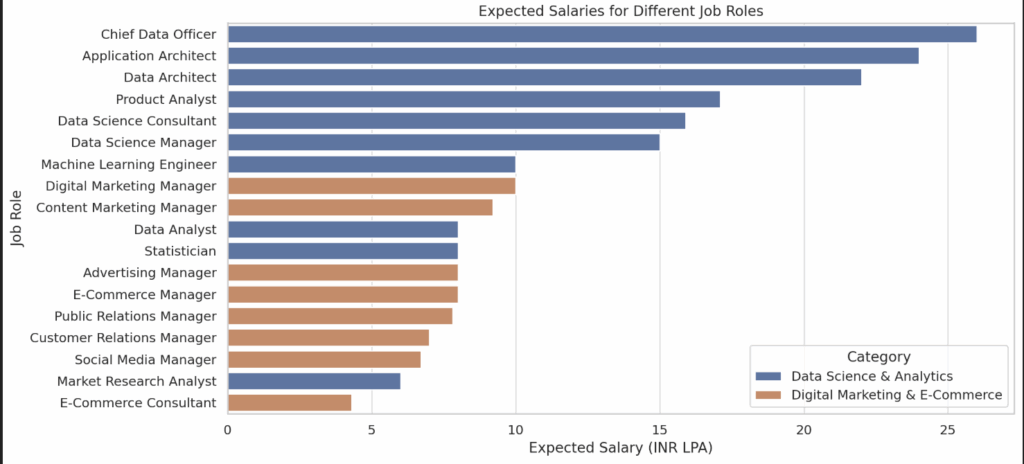The Rise of Digital Business
Once upon a time, business was bound by boardrooms, paper trails, and manual decisions. Strategies were shaped by instinct, experience, and static reports. But then came a quiet shift—a subtle hum of machines, a spark of connectivity, and the birth of a digital world. What started as simple automation soon unfolded into a revolution.
As the world connected through networks and data began flowing freely, business found itself standing at a crossroads. It was no longer just about selling or managing—it became about adapting, predicting, and personalizing. The digital wave didn’t knock—it seeped in silently, reshaping every process, every plan, and every goal.
This was the dawn of Digital Business—a space where traditional management met the power of modern technology. And with this, emerged the need for minds that could bridge both worlds.
Career Opportunities and Salary Prospects
As digital business took shape, it opened gates to an ecosystem fueled by data, driven by insights, and scaled by innovation. This shift demanded not just professionals, but specialists—ones who could interpret numbers, decode patterns, and lead strategies into the future.
From the data-driven side of the digital world, opportunities emerged across industries:

These roles became the pillars of digital-first strategies—each one essential in keeping brands alive, competitive, and forward-moving.
The salary of Data Science and Analytics professionals was much higher in the first place; in comparison to the Digital Marketing & E-commerce professionals. It owes the salary hike to MBA in Digital Business which is the need of hour and a high paying profession.
Advantages of Pursuing an MBA in Digital Business
As the business world evolved, so did education. An MBA in Digital Business rose as a response—not just to trends, but to transformation itself.
It became a gateway to mastering the intersection of management and modern tech. With it came:
- High Demand Across Industries: As every sector—from healthcare to retail—rushed to digitize, the need for professionals with strategic and tech expertise skyrocketed.
- Flexible Work Models: Being digital meant being borderless. Roles now offered remote options, global exposure, and hybrid lifestyles.
- Cost-Effective Learning: With more institutions offering flexible, online-first MBA programs, access to quality digital business education became easier and more affordable.
- Enhanced Earning Potential: The figures spoke for themselves—those equipped with this specialization were earning not just salaries, but influence in the digital space.
Industry Trends and Future Outlook
What began as a convenience has now become a necessity. The digital marketing sector is expected to grow at a staggering CAGR of 32.1% by 2028, reaching a value of USD 24.1 billion. Roles like “Digital Marketing Specialist” have already secured their place in the top 10 most in-demand jobs globally, with over 860,000 active openings.
And this isn’t limited to marketing alone. From data science to AI-driven customer experience, every part of business is now powered by digital expertise.
Conclusion
The story of business is no longer about surviving change—it’s about leading it.
An MBA in Digital Business is more than just a degree. It’s a toolset, a mindset, and a launchpad into the future. For those ready to embrace the digital shift, the path ahead isn’t just bright—it’s dynamic, expansive, and deeply rewarding.
Yes, the investment is real—but so are the outcomes. With the right skills, the digital frontier doesn’t just welcome you—it needs you.


Leave a Reply
You must be logged in to post a comment.